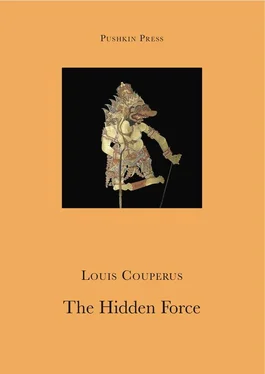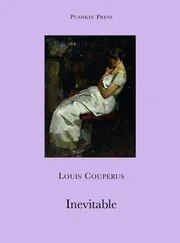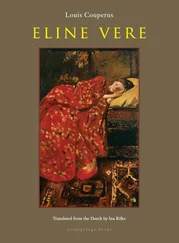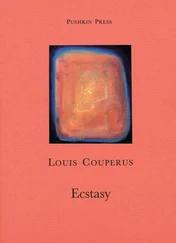Louis Couperus - The Hidden Force
Здесь есть возможность читать онлайн «Louis Couperus - The Hidden Force» весь текст электронной книги совершенно бесплатно (целиком полную версию без сокращений). В некоторых случаях можно слушать аудио, скачать через торрент в формате fb2 и присутствует краткое содержание. Год выпуска: 2012, ISBN: 2012, Издательство: Pushkin Press, Жанр: Классическая проза, на английском языке. Описание произведения, (предисловие) а так же отзывы посетителей доступны на портале библиотеки ЛибКат.
- Название:The Hidden Force
- Автор:
- Издательство:Pushkin Press
- Жанр:
- Год:2012
- ISBN:9781908968227
- Рейтинг книги:4 / 5. Голосов: 1
-
Избранное:Добавить в избранное
- Отзывы:
-
Ваша оценка:
- 80
- 1
- 2
- 3
- 4
- 5
The Hidden Force: краткое содержание, описание и аннотация
Предлагаем к чтению аннотацию, описание, краткое содержание или предисловие (зависит от того, что написал сам автор книги «The Hidden Force»). Если вы не нашли необходимую информацию о книге — напишите в комментариях, мы постараемся отыскать её.
The Hidden Force — читать онлайн бесплатно полную книгу (весь текст) целиком
Ниже представлен текст книги, разбитый по страницам. Система сохранения места последней прочитанной страницы, позволяет с удобством читать онлайн бесплатно книгу «The Hidden Force», без необходимости каждый раз заново искать на чём Вы остановились. Поставьте закладку, и сможете в любой момент перейти на страницу, на которой закончили чтение.
Интервал:
Закладка:
Radèn Adipati Surio Sunario turned a shade of olive green. His trancelike gaze pierced the District Commissioner, but he saw that the Commissioner too was seething with rage. And he smothered his strange flashing gaze till it became a sleepy, tired look.
“I thought, Commissioner, that you had always felt affection for my house,” he murmured, almost plaintively.
“You thought correctly, Prince. I held the pangéran in great affection. I have always admired your noble house, and I have always tried to support it. I should like to continue to support it, together with you, Prince, hoping that you see not only — as you are said to — the world beyond this one, but also the reality around you. But it is your brother, Prince, for whom I feel no affection and whom I cannot possibly respect. I have been told — and can trust those who told me — that the Prince of Ngajiwa has not only gambled… but has also failed to pay the chiefs of Ngajiwa their salaries this month…”
They looked each other in the eye and Van Oudijck’s calm, assured gaze once again met the Prince’s flashing trancelike stare.
“Your informants may be mistaken…”
“I suspect that they would not bring such reports without having absolute certainty. Prince, this matter is very sensitive. Once again: you are the head of your family. Investigate the extent to which your younger brother has misused government funds and ensure that complete reparation is made as soon as possible. I am deliberately leaving the matter to you. I shall not raise the question with your brother, in order to spare a member of your family for as long as I can. It is up to you to reprimand your brother and point out to him what in my eyes is a crime, but one which you through your prestige as head of the family can still expunge. Forbid him to go on gambling and order him to keep his passion in check. Otherwise, I foresee very regrettable consequences, and I shall have to recommend your brother’s dismissal. You yourself know how reluctant I am to do this, since the Prince of Ngajiwa is the second son of the old pangéran , whom I held in high esteem, just as I would always wish to spare your mother, the radèn-ayu pangéran , any kind of sorrow.”
“I thank you…” murmured Sunario.
“Take good note of what I am saying to you, Prince. If you cannot make your brother see reason, and control his passion — if the salaries of the heads are not paid as soon as possible… then I shall be forced to act. And if my warning is to no avail… that would mean your brother’s downfall. You yourself know that the dismissal of a prince is such an exceptional event that it would bring shame upon your family. Help me to save the house of the Adiningrats from such ignominy.”
“I promise,” murmured the Prince.
“Give me your hand, Prince.”
Van Oudijck pressed the thin fingers of the Javanese.
“Can I trust you?” he asked urgently.
“In life… in death…”
“Let us go in then. And let me know your findings as soon as possible…”
The Prince bowed. His pale olive skin betrayed the silent, hidden rage churning inside him like the magma of a volcano. His eyes drilled with silent hatred into Van Oudijck’s back, the Dutchman, the base Dutchman, the commoner, the unclean dog, the infidel Christian, who, whatever he might feel in his polluted soul, had no business concerning himself with anything of his, his house, his father, his mother, their sacrosanct nobility and aristocracy… even though they had always bowed under the yoke of superior strength…
3
“I’M COUNTING ON YOU to stay for dinner,” said Eva.
“Of course,” replied Controller Van Helderen and his wife.
The reception— not a reception, as Eva always pleaded — was coming to an end: the Van Oudijck’s had left first; the Prince followed. The Eldersma’s were left alone with their intimate circle: Doctor Rantzow, senior engineer Doorn de Bruijn, with their wives and the Van Helderens. They sat down on the front veranda with some sense of relief and rocked comfortably to and fro. Whisky sodas and lemonade with great chunks of ice were served.
“Always full to burst, Eva’s reception,” said Mrs Van Helderen. “Fuller than last time at the Commissioner’s…”
Ida van Helderen was a typical white Eurasian, who always tried to behave in a very European way, and speak correct Dutch; she even pretended to speak bad Malay and not like either rijsttafel or spicy fruit salad. She was short and plump, very white, with big black eyes that always looked startled. She was full of little secret whims, hatreds, affections; they all welled up in her from mysterious, unfathomable motives. Sometimes she hated Eva, sometimes she adored her. She was totally unpredictable; every action, every movement, every word could hold a surprise. She was always in love, tragically. She saw her little private emotions in an extremely tragic light, grand and sombre — without any sense of proportion — and then poured her heart out to Eva, who laughed and comforted her. Her husband, the controller, had never been in Holland: he had been educated entirely in Batavia, in the Colonial Department of King William III College. And it was a very strange sight to see this Creole, apparently completely European — tall, blond, pale, with a blond moustache, his lively, expressive blue eyes full of interest, with his manners that were more refined than those of the most select circles in Europe, and yet so Indies in his ideas, vocabulary, dress. He spoke about Paris and Vienna as if he had spent years there, though he had never left Java; he loved music, though he found it difficult to come to terms with Wagner, when Eva played for him; and his great dream was to go to Europe one day on leave, to see the Paris Exhibition. There was an astonishing distinction and innate style about this young man, as if he were not the child of European parents, who had spent their whole lives in the Indies, but a stranger from an unknown country, whose nationality one could not immediately call to mind… At most there was a certain softness in his accent — the influence of the climate. He spoke Dutch so correctly that it would have appeared almost stiff amid the careless slang of the motherland; and he spoke French, English and German with greater ease than most Dutchmen. Perhaps he derived that exotic politeness and courtesy from a French mother: innate, pleasant, natural. In his wife, also of French origin, who came from Réunion, that exoticism had resulted in a mysterious mixture that had retained nothing but childishness: a welter of petty emotions, petty passions, while with her sombre eyes she strove for a tragic view of life, which she had merely flicked through like a badly written novelette.
Now she imagined she was in love with the senior engineer, the black-bearded doyen of the clique, already greying; and, in her tragic way, she imagined scenes with Mrs Doorn de Bruijn, a portly, placid, melancholy woman. The other couple in their intimate circle, Doctor Rantzow and his wife, were German: he, fat, blond, rather vulgar, with a middle-age spread; she, a pleasant, matronly type who spoke animatedly in Dutch with a German accent.
This was the clique where Eva’s word was law. Apart from Frans van Helderen, the controller, it consisted of very ordinary Indies and European types, people without any aesthetic sense, as Eva said, but she had no other choice in Labuwangi, and so she amused herself with Ida’s petty Eurasian tragedies, and resigned herself to the rest. Her husband, Onno, tired from his work as always, did not contribute much to the conversation, but listened.
“How long was Mrs Van Oudijck in Batavia?” asked Ida.
“Two months,” said the doctor’s wife. “A long stay this time.”
Читать дальшеИнтервал:
Закладка:
Похожие книги на «The Hidden Force»
Представляем Вашему вниманию похожие книги на «The Hidden Force» списком для выбора. Мы отобрали схожую по названию и смыслу литературу в надежде предоставить читателям больше вариантов отыскать новые, интересные, ещё непрочитанные произведения.
Обсуждение, отзывы о книге «The Hidden Force» и просто собственные мнения читателей. Оставьте ваши комментарии, напишите, что Вы думаете о произведении, его смысле или главных героях. Укажите что конкретно понравилось, а что нет, и почему Вы так считаете.












